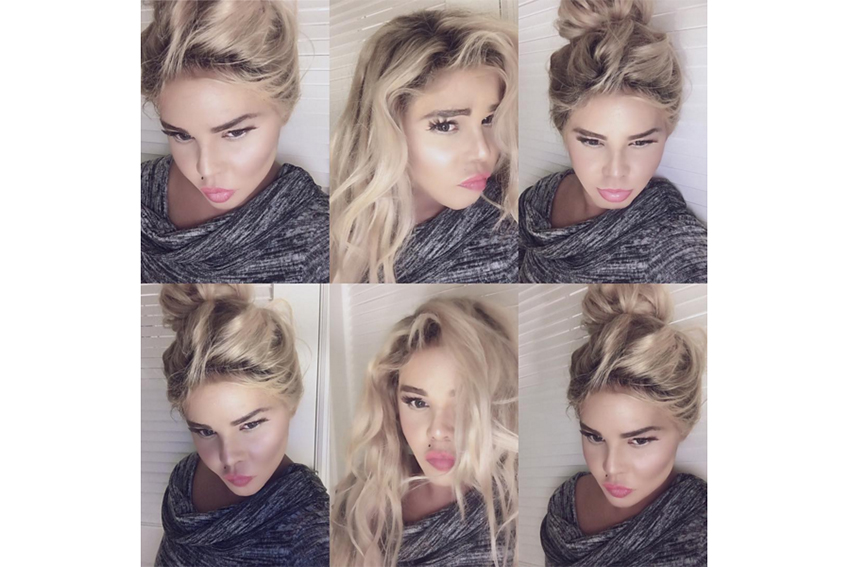“Everything about me was wrong — my hair, my clothes, just me.” Lil’ Kim said these words in an interview with Newsweek Magazine back in June 2000. This was back when Lil’ Kim was still the tiny, brown-skinned, outspoken, beautiful woman who we first fell in love with. Recently, the rapper shared some photos of herself on Instagram in which she is unrecognizable. With skin multiple shades lighter than her natural tone, her face oddly chiseled and bleached blonde hair her fans were left wondering, “What happened to Lil’ Kim?” In short, she got lost in a man’s world.
Lil’ Kim has been very open about her struggle with self-esteem, which stemmed from having an unsupportive father and a string of problematic relationships with men. She’s discussed in interviews how the men she dated constantly told her that she was not good enough. As a result, she continued changing herself in search of their approval.
Unfortunately, this narrative is nothing new. We’ve handmade a society that says that men give women their value and if you aren’t desired by a man there must be something wrong with you. Our misogynistic culture has made it exceptionally difficult for young girls to grow up comfortably in the bodies that they are given.
Misogyny is not the sole perpetrator in this case. Our television shows, films and magazines have all set impossible body standards for consumers. In America, 15.9 million surgical and minimally invasive cosmetic procedures were performed in 2015 alone. Since 2000, these numbers have risen by 115 percent.
The ideal female body that the media has created isn’t attainable. First, thin was in, but now everyone wants to be “thick.” Big breasts used to be the style, but now it’s all about having a big butt. Our bodies can’t transform as fast as the latest trends are set, yet we try in vain. It’s nearly gotten to the point where it’s socially acceptable to hate yourself — to want to change everything about you that makes you unique.
The last, but not least, offender against Lil’ Kim is colorism. Looking at recent pictures of the rapper, it’s clear that she’s somehow lightened her skin. Many speculate that she achieved this through bleaching.
If these claims are true, I wouldn’t be surprised. Lil’ Kim is not the first black woman in Hollywood to feel the pressures of white washing. Rapper Azealia Banks recently admitted to bleaching because of the industry’s disregard for darker skinned girls’ talent. Nicki Minaj, Rihanna and Keri Hilson have also all been accused of skin bleaching.
And if they have, who really can blame them? We talk a good talk about loving our melanin, yet we almost exclusively celebrate lighter skinned complexions. As Lil’ Kim put it in her Newsweek interview, “being a regular black girl [isn’t] enough.”
Lil’ Kim, just like every other woman in America, grew up in a culture that allowed men to define her worth and the media to define her beauty. We don’t have the right to be surprised or outraged by her transformation. Our society is responsible for it. We did this to her.
Brookins is a junior psychology major from McKinney. Follow her on Twitter @kenneteaa.





















